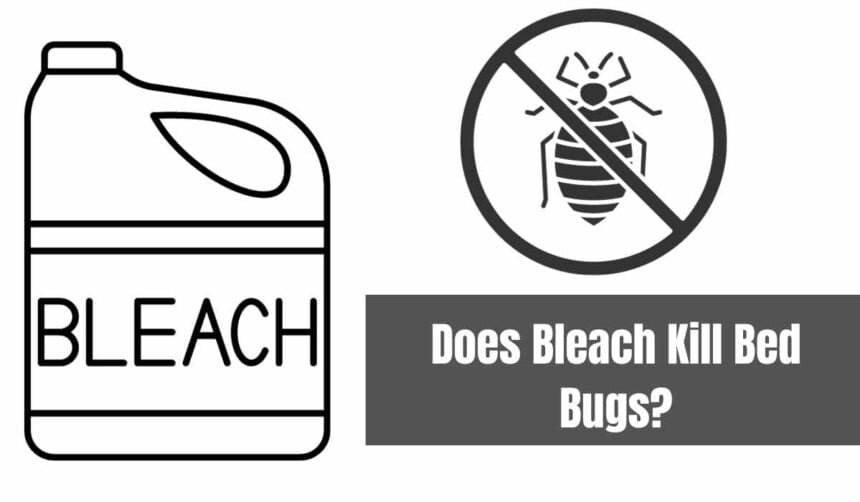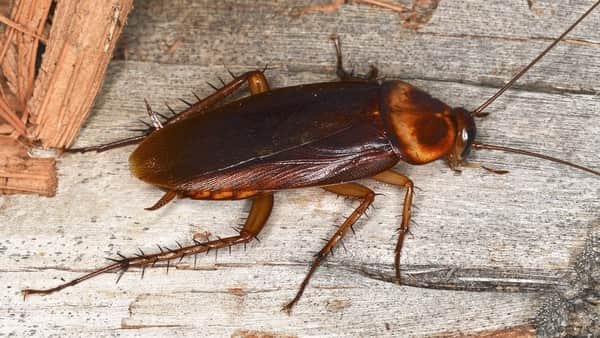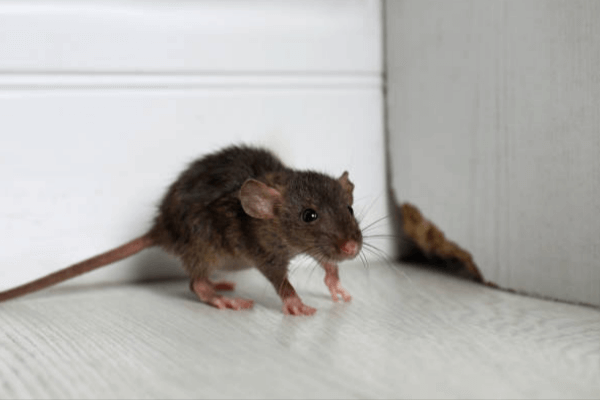Small, flat, oval-shaped insects, bed bugs live exclusively on the blood of humans. Due to the difficulty of eliminating a bed bug infestation, proper treatment is essential.
One common question is whether or not bleach will kill bed bugs. Check out this in-depth analysis of bleach’s efficacy against bed bugs.
What Are Bed Bugs?
The scientific name for the bloodsucking insect known as a bed bug is Cimex lectularius. They range in size from 1mm to 7mm in length and have a reddish-brown hue. Bed bugs are flattened oval insects that hide in gaps and nooks.
Bed bugs are nocturnal bloodsuckers that often attack while their hosts are asleep. They penetrate the skin and extract blood using their needle-like mouthparts. Bed bugs inject anesthetics and anticoagulants into their victims’ blood while feeding, so the bites are often missed.
Without a blood meal, a bed bug can live for up to a year. They like to make their homes in stuff like mattresses, bed frames, furniture, and cracks and crevices in and around bedrooms. Bed bugs can last months without food, making infestations tough to treat.
Dangers of Bed Bugs
Bed bugs are not known to spread disease, although they have been linked to certain health problems.
- Itchy welts and blisters from the bites
- Allergic reactions to the anesthetic chemicals in their saliva
- Anxiety, stress, and sleeplessness
- Skin infections if bites are scratched open
- Illnesses from pesticide misuse during treatment
- Anemia from heavy infestations of bed bugs
Bed insect infestations are not only physically harmful, but also psychologically and monetarily taxing. Professional pest management, the disposal of infested furniture, and vigilant prevention are generally required to get rid of bed bugs.
Also See: Does Rubbing Alcohol Kill Bed Bugs?
Using Bleach as a Bed Bug Treatment
Bleach has been questioned for its effectiveness against bed bugs. Sodium hypochlorite is the main ingredient in most brands of bleach. This works wonderfully as a pesticide and disinfectant. However, there are a few caveats that make bleach a poor choice for eliminating bed bugs.
- The EPA has not approved bleach for the treatment of bed bugs. It has not been subjected to rigorous testing in both the lab and the field to establish its effectiveness and the best methods for applying it. Bed bug-specific pesticides may not be as effective as general-purpose ones.
- The only way to kill insects with bleach is to spray it on them. Bed bugs can be difficult to kill with bleach because they hide in so many different places. There may still be some bed bugs that survive after a bleach treatment.
- Pesticide-resistant strains of bed bugs are a real threat. Excessive bleach use may eventually make it more difficult to eliminate bed bugs.
- There are several materials that bleach can harm or stain. It must be applied with care to avoid damaging household items, and surfaces must be properly cleaned after usage.
- Bleach has a pungent odor and, if inhaled, can be dangerous. When working with bleach, it’s important to wear safety gear like gloves and a face mask.
- There will be no permanent repercussions from using bleach. Once dry, it loses its effectiveness against bed bugs. It would be necessary to reapply.
Using bleach alone is ineffective; instead, look for solutions approved for use against bed bugs by the Environmental Protection Agency. Sprays and industrial-strength fumigants fall within this category. Furthermore, non-chemical treatment approaches should be utilized:
- Thoroughly steam clean or heat treat infested items
- Seal cracks and crevices where bed bugs may hide
- Use mattress encasements to trap bugs
- Vacuum carpets, furniture, and mattresses frequently
- Set beds away from walls and apply interceptors under legs
- Regularly inspect for signs of bed bugs
Bleach can be used as part of a treatment plan to kill bed bugs, but it shouldn’t be the only thing you use. Bed bugs can be eliminated and further infestations avoided with the right combination of pesticides certified by the Environmental Protection Agency (EPA), thorough cleaning, and vigilance.
Bleach can be used as an additional treatment, but it shouldn’t replace more effective methods like insecticides, steam, or heat.
Bleach may help reduce bed bug populations when used in conjunction with other treatments. It does not, however, solve the problem of bed bugs on its own.
Related: Does Baking Soda Kill Bed Bugs?
Precautions When Using Bleach
Follow these safety measures if you decide to use bleach as part of your bed bug management strategy:
- Bleach should only be used in pest control and disinfecting applications. When possible, try to avoid putting bleach on anything that can lose its color.
- For proper and safe use, read and follow all label instructions. Don’t ever combine bleach with ammonia or any other insecticide.
- When working with powerful bleach, always protect your hands and eyes. Do not get it on your skin or breathe the fumes.
- Make sure the treated space has enough ventilation and that all surfaces have dried before reentering. Food contact surfaces should be rinsed after using bleach.
- Any remaining bleach solution should be discarded, and hands should be washed thoroughly following application. Keep any bleach products in a locked cabinet, away from curious hands and dogs.
- In order to determine if bleach will cause any discoloration or damage, it should first be tested in discreet regions.
- Avoid using bleach on any metal surfaces or appliances since it can cause corrosion. Make use of electronic product safeguards.
While bleach does have some pesticidal properties, it is hardly a magic bullet for eliminating bed bugs. Bleach should be used as part of a comprehensive strategy for pest management for the best results.
You can get rid of bed bugs if you work hard and use goods and techniques that have been approved by the Environmental Protection Agency (EPA).







